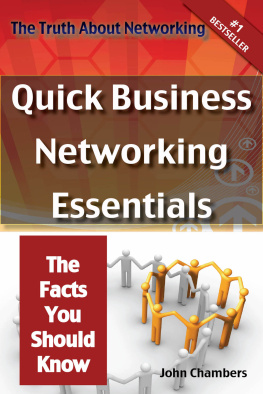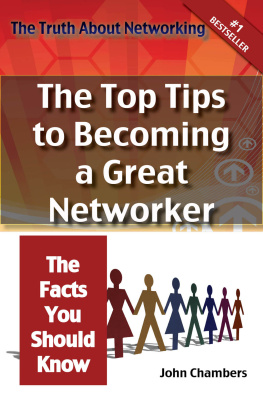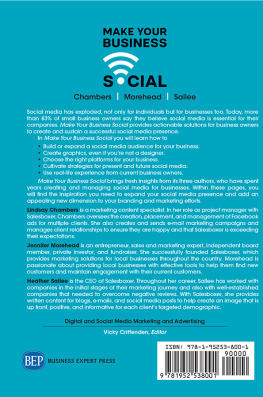John Chambers - Connecting the Dots: Lessons for Leadership in a Startup World
Here you can read online John Chambers - Connecting the Dots: Lessons for Leadership in a Startup World full text of the book (entire story) in english for free. Download pdf and epub, get meaning, cover and reviews about this ebook. year: 2018, publisher: Hachette Books, genre: Business. Description of the work, (preface) as well as reviews are available. Best literature library LitArk.com created for fans of good reading and offers a wide selection of genres:
Romance novel
Science fiction
Adventure
Detective
Science
History
Home and family
Prose
Art
Politics
Computer
Non-fiction
Religion
Business
Children
Humor
Choose a favorite category and find really read worthwhile books. Enjoy immersion in the world of imagination, feel the emotions of the characters or learn something new for yourself, make an fascinating discovery.

- Book:Connecting the Dots: Lessons for Leadership in a Startup World
- Author:
- Publisher:Hachette Books
- Genre:
- Year:2018
- Rating:3 / 5
- Favourites:Add to favourites
- Your mark:
Connecting the Dots: Lessons for Leadership in a Startup World: summary, description and annotation
We offer to read an annotation, description, summary or preface (depends on what the author of the book "Connecting the Dots: Lessons for Leadership in a Startup World" wrote himself). If you haven't found the necessary information about the book — write in the comments, we will try to find it.
When Chambers joined Cisco in 1991, it was a company with 400 employees, a single product, and about $70 million in revenue. When he stepped down as CEO in 2015, he left a $47 billion tech giant that was the backbone of the internet and a leader in areas from cybersecurity to data center convergence. Along the way, he had acquired 180 companies and turned more than 10,000 employees into millionaires. Widely recognized as an innovator, an industry leader, and one of the worlds best CEOs, Chambers has outlasted and outmaneuvered practically every rival that ever tried to take Cisco on--Nortel, Lucent, Alcatel, IBM, Dell, and Hewlett-Packard, to name a few.
Now Chambers is sharing his unique strategies for winning in a digital world. From his early lessons and struggles with dyslexia in West Virginia to his bold bets and battles with some of the biggest names in tech, Chambers gives readers a playbook on how to act before the market shifts, tap customers for strategy, partner for growth, build teams, and disrupt themselves. He also adapted those lessons to transform government, helping global leaders like French President Emmanuel Macron and Indian Prime Minister Narendra Modi to create new models for growth.
As CEO of JC2 Ventures, hes now investing in a new generation of game-changing startups by helping founders become great leaders and scale their companies.
Connecting the Dotsis destined to become a business classic, providing hard-won insights and critical tools to thrive during the accelerating disruption of the digital age.
John Chambers: author's other books
Who wrote Connecting the Dots: Lessons for Leadership in a Startup World? Find out the surname, the name of the author of the book and a list of all author's works by series.













